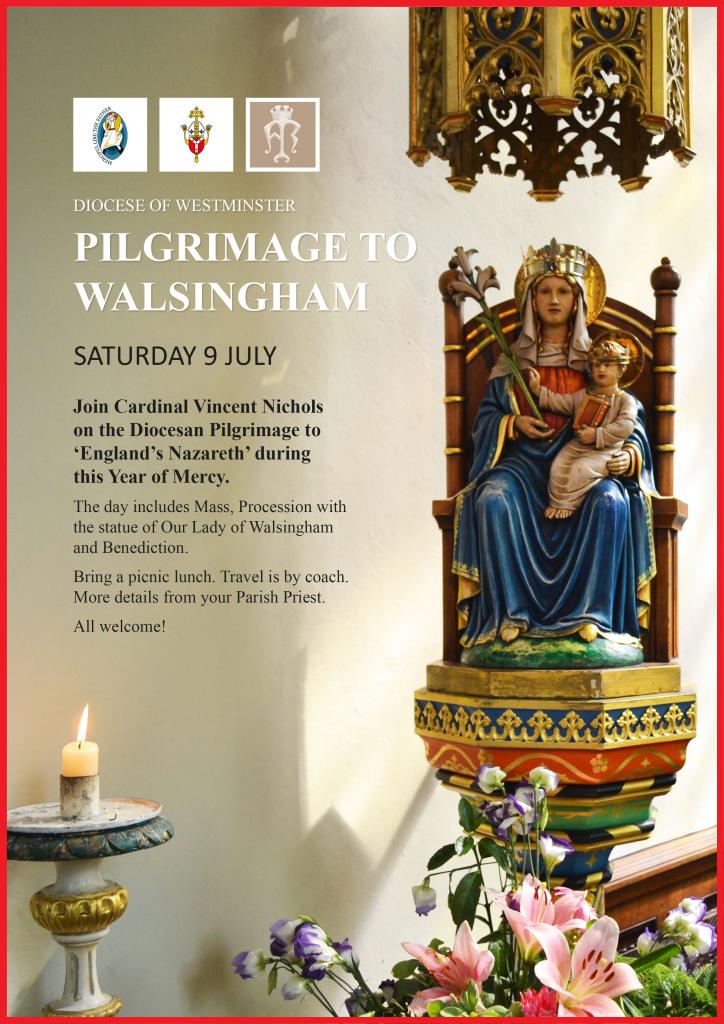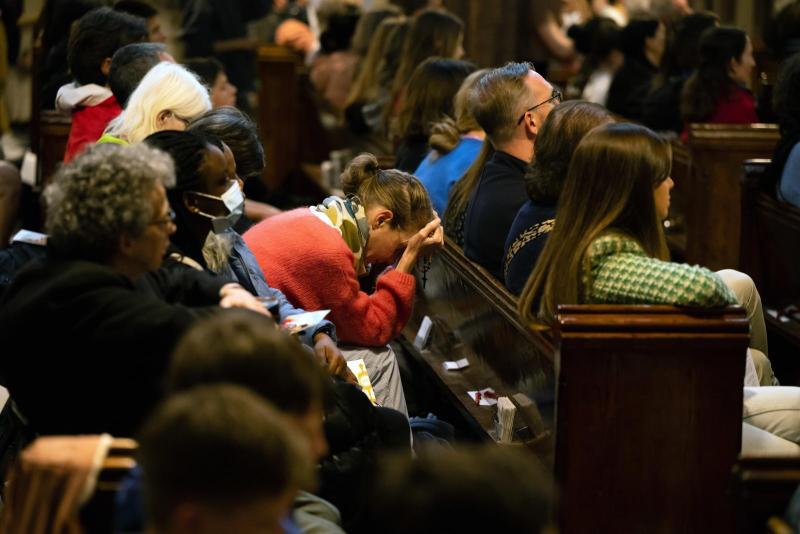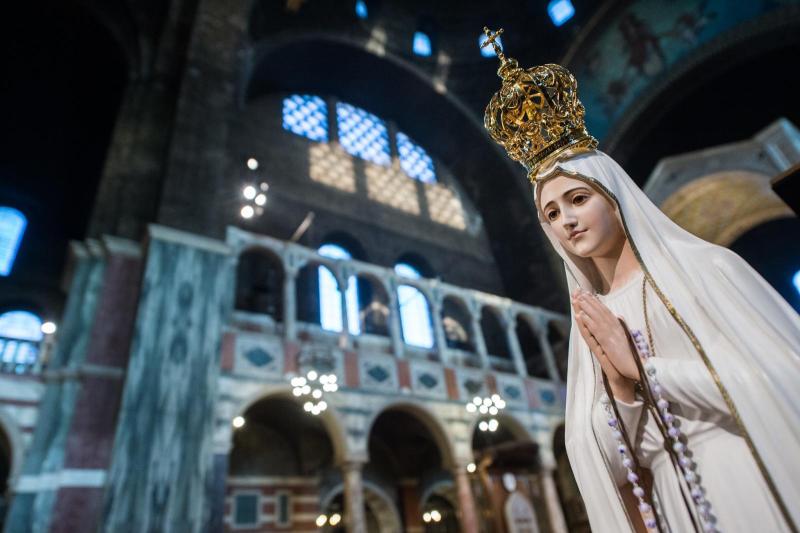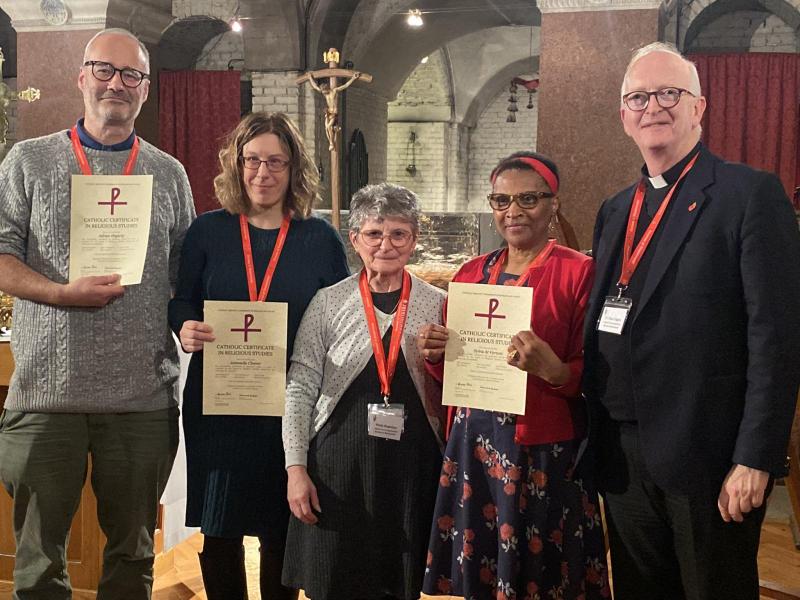By Gerald Daly
Sometime around the year 1600, a person, anonymous by name and occupation, picked their way quietly and unobtrusively along the lanes of north Norfolk towards the hamlet of Little Walsingham. What it was that brought them to this remote corner of the country we do not know but we can speculate that an opportunity was taken to see something by making a detour on the way to legitimate business, perhaps in King’s Lynn or Norwich.
We don’t know who they were but we can be certain that they were a recusant Catholic and the thing, the place, they wanted to spy on was the ruins of the great medieval shrine at Walsingham and we know this because they left a witness in the form of a remarkable poem A Lament for Our Lady’s Shrine at Walsingham.

The poem is minimal in form, composed of eleven quatrains, in a simple pattern of alternating four and three meter lines with occasional dropped stresses in the three meter lines (‘the sacred vine’), and the use of repetition as an intensifier (‘Bitter, bitter’; ‘Weep, weep’). The form may be simple but the language and thought point to a sophisticated mind and someone with considerable skill in the craft of poetry. This has prompted some to suggest St Philip Howard, Earl of Arundel, as author.
Whoever it may have been, the writer is clearly an eyewitness of what is described and conveys an overwhelming sense of sorrow and grief at the destruction some 60 years before of the shrine under Henry VIII (the ‘Prince of Walsingham’ to the memory of whose name ‘bitter woes’ are called down).
It is a powerful testimony to the endurance of the faith and its collective memory of a time before the Reformation. It does this by contrasting what was with what is: tall, glittering towers now laid low, toads and serpents lurk where once were pilgrims (palmers), owls shriek were once sweet hymns were sung, night reigns instead of day, holy deeds are turned to outrages (despites), blessings are turned to blasphemies.
Our anonymous author looks on the wreckage (’wracks’) and mourns for the faithful (‘the seely sheep’), slaughtered by the ravenous wolves brought down upon the fold by the Reformation. In the evocative word ‘wracks’ we can hear an allusion to the violence and pain inflicted by the racks that destroyed lives as the walls and towers of the shrine were destroyed.
In the final verse we hear the poignancy and sadness of the moment when the author turns away and bids goodbye to Walsingham resigned, it seems, to it never rising again (‘Walsingham, O farewell’).
As we prepare for our diocesan pilgrimage to Walsingham in this Year of Mercy, it would be good to think that we could reach across the centuries to our unknown brother or sister and tell them that we have indeed come back, that the sheep have returned to graze in the fields once rooted up by the swine and that Walsingham has risen again and that Mary, Mother of Mercy, Our Lady of Walsingham sits once more under her canopy in England’s Nazareth.
The diocesan pilgrimage to Walsingham for the Year of Mercy will take place on 9 July 2016. For more information, contact your parish priest.
A Lament for Our Lady’s Shrine at Walsingham
In the wracks of Walsingham
Whom should I choose
But the Queen of Walsingham
To be my guide and muse
Then, thou Prince of Walsingham
Grant me to frame
Bitter plaints to rue thy wrong,
Bitter woe for thy name
Bitter was it to see
The seely sheep
Murdered by the ravenous wolves
While the shepherds did sleep.
Bitter was it, O to view
The sacred vine,
Whilst the gardeners played all close,
Rooted up by the swine.
Bitter, bitter O to behold
The grass to grow
Where the walls of Walsingham
So stately did show.
Such were the worth of Walsingham
while she did stand,
Such are the wracks as now do show
Of that Holy Land.
Level, level, with the ground
The towers do lie,
Which, with their golden glittering tops,
Pierced once the sky.
Where were gates are no gates now,
The ways unknown
Where the press of peers did pass
While her fame was blown.
Owls do scrike where the sweetest hymns
Lately were sung,
Toads and serpents hold their dens
Where the palmers did throng.
Weep, weep, O Walsingham,
Whose days are turned to nights,
Blessings turned to blasphemies,
Holy deeds to despites.
Sin is where Our Lady sat,
Heaven is turned to hell,
Satan sits where Our Lord did sway
Walsingham, O farewell!




